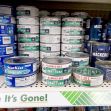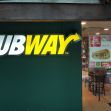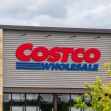Big box retailer Costco lost its bid to dismiss a lawsuit alleging the company falsely advertises its canned tuna as “dolphin safe.” A proposed class action claims Costco’s tuna is acquired via fishing methods that harm and kill dolphins.
A federal court in San Francisco recently rejected Costco’s motion to dismiss the allegations targeting the retailer’s canned tuna. The class action complaint asserts that Costco’s labeling, packaging, and advertising promises that its tuna products are “dolphin safe,” leading customers to believe the tuna “were caught using fishing methods that do not kill or harm dolphins.” The complaint lists several of Costco’s representations concerning their tuna’s humane and environmentally-friendly sourcing.
Despite the company’s representations, the plaintiff contends, fishing via the use of “100% monofilament leaders & circle hooks” is neither sustainable nor dolphin-friendly. These tools are “hazardous to marine mammals like dolphins, sea turtles, sharks, and sea birds which become entangled in or ingest the almost invisible wire, leading to injury and death.” The plaintiff seeks to represent California and nationwide classes of misled Costco customers.
Costco sought to dismiss the case based on the Dolphin Protection Consumer Information Act (DPCIA). The company claimed that it used a dolphin-safe logo “authorized by the DPCIA,” and allowing the claims to proceed would represent “a direct challenge to the DPCIA uniform `dolphin safe' labeling standard.” Because Costco’s tuna satisfied the DPCIA’s definition of “dolphin safe,” the retailer argues, it made no false statements.
The DPCIA is a federal law that sets minimum standards for products to be labeled “dolphin safe.” Advertising a product as dolphin safe when it violates the terms of the law constitutes unlawful and unfair trade practices under the Federal Trade Commission Act. The National Oceanic and Atmospheric Administration (NOAA) issued a final rule designating an official “dolphin safe” mark companies may use on products that satisfy the DPCIA’s standards.
Costco claims that it did no more than use the NOAA’s dolphin safe mark. Permitting the case to continue would be tantamount to using “state law to impose dolphin safe labeling requirements that are more strict or vary from the federal requirements.” Claims that encroach on an area already regulated under federal law are preempted.
The court disagreed. First, the fact that the FTC has the authority to police false advertisement does not automatically preempt similar state law claims. Second, the complaint alleges that Costco’s representations promised customers more than the DPCIA’s minimum standards. As explained by the court, “his case is not about whether Costco complied with DPCIA’s labeling requirements. It is about Costco’s own promise to consumers that the product was dolphin-safe, and whether that statement was false, deceptive, or misleading.”
The court’s ruling does not establish that Costco is guilty of anything alleged in the complaint. The opinion merely allows the case to continue, rather than ruling the claims are preempted as a matter of law. The plaintiff still needs to prove that her case merits class certification and that Costco made material misrepresentations.






